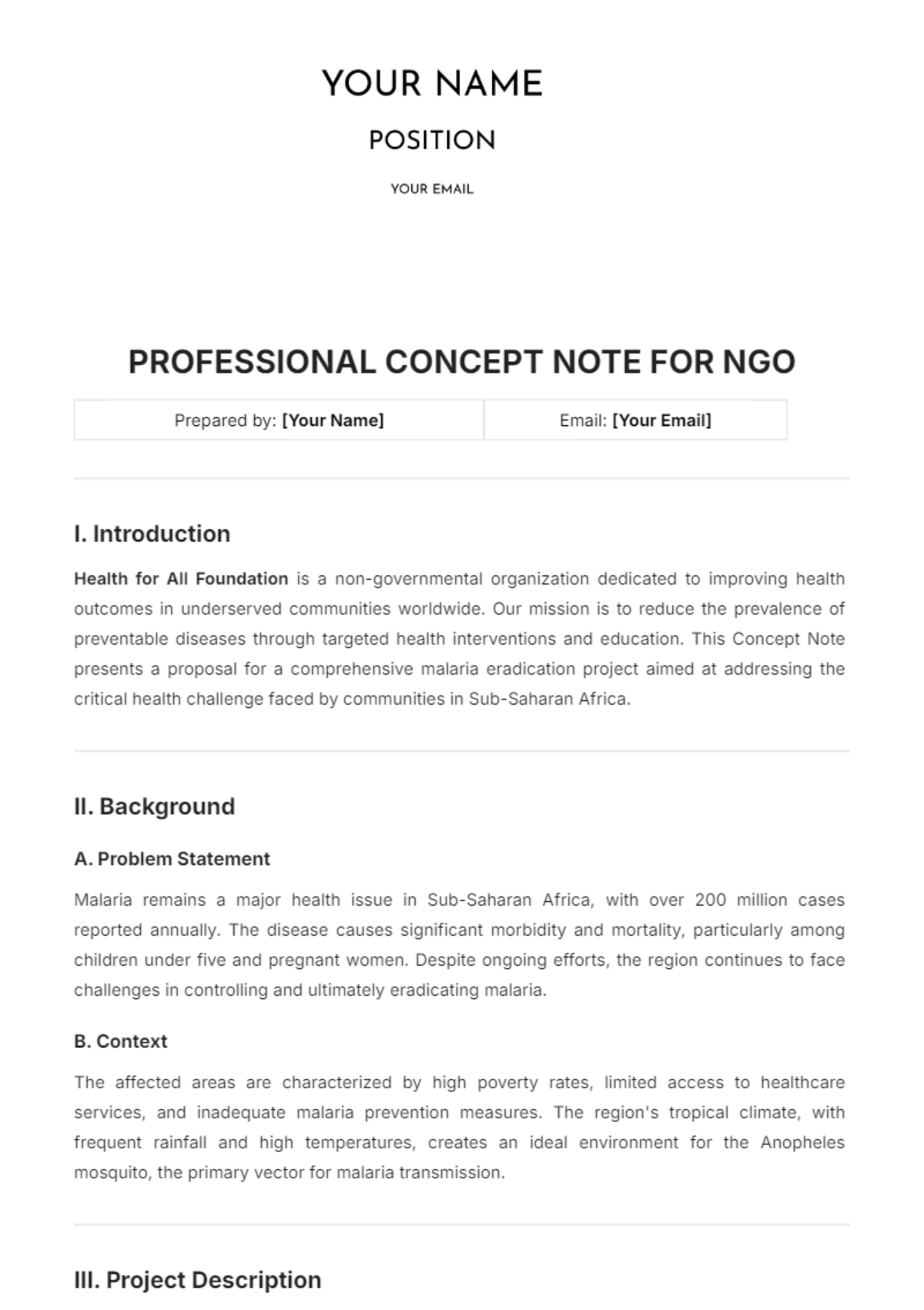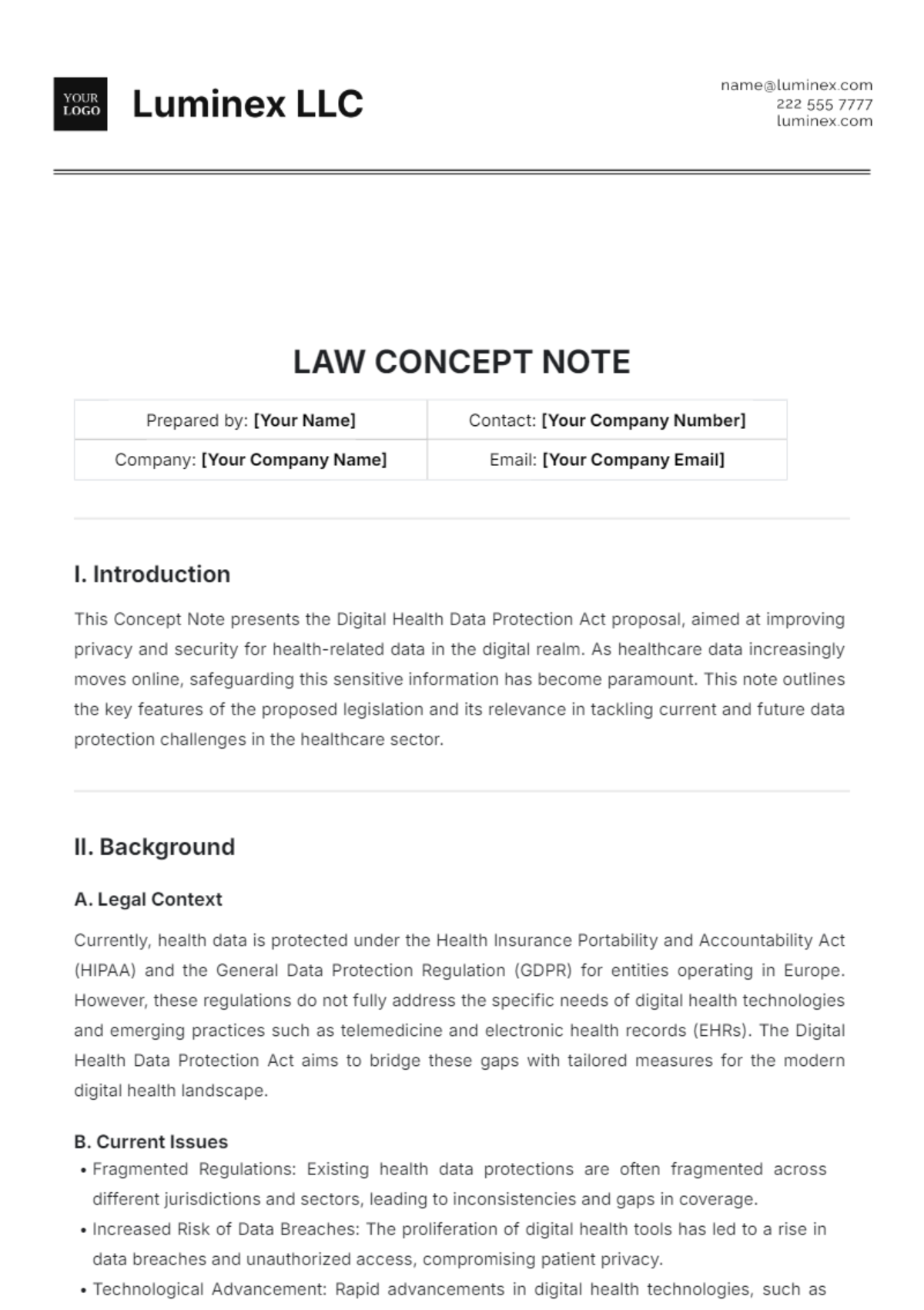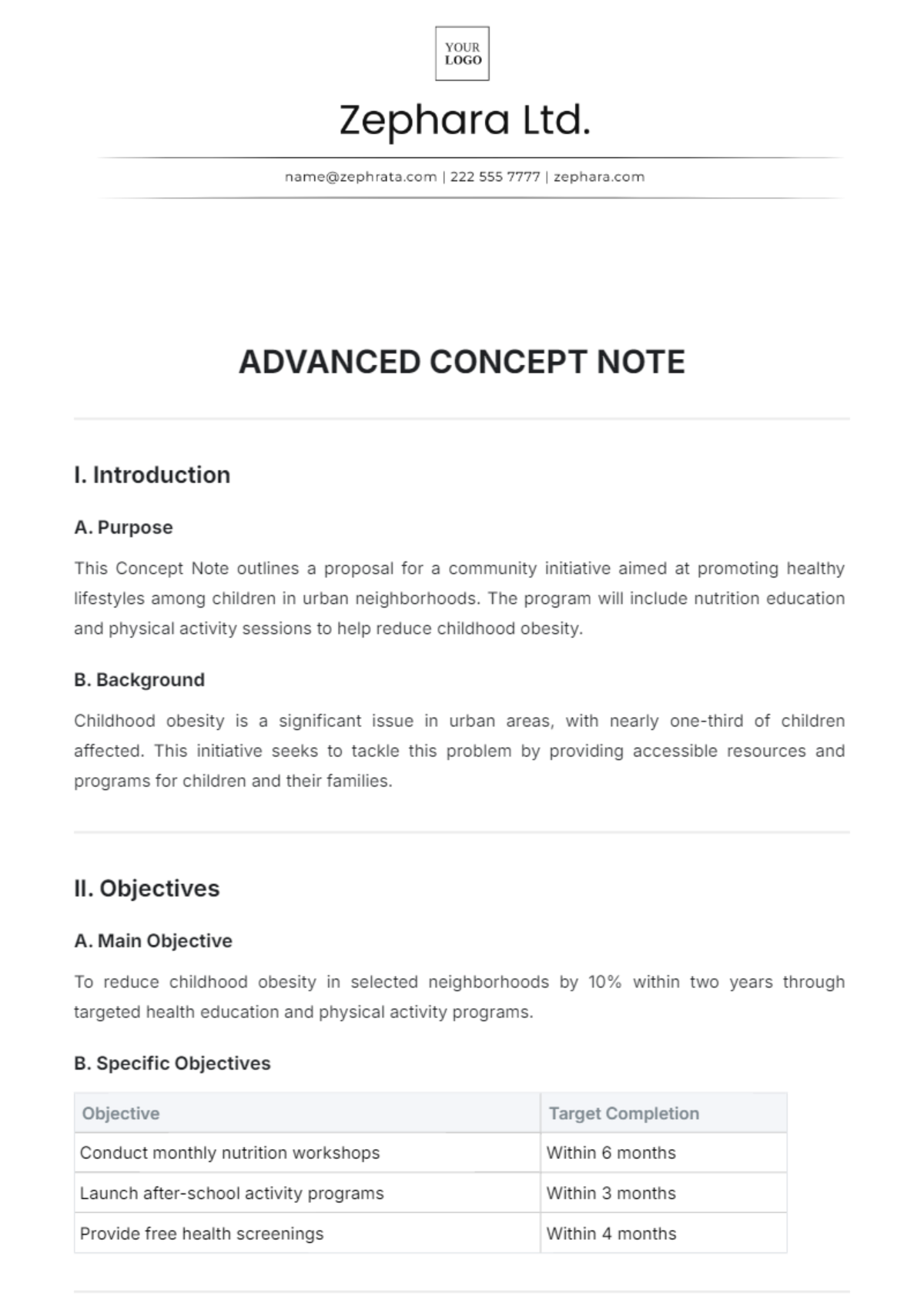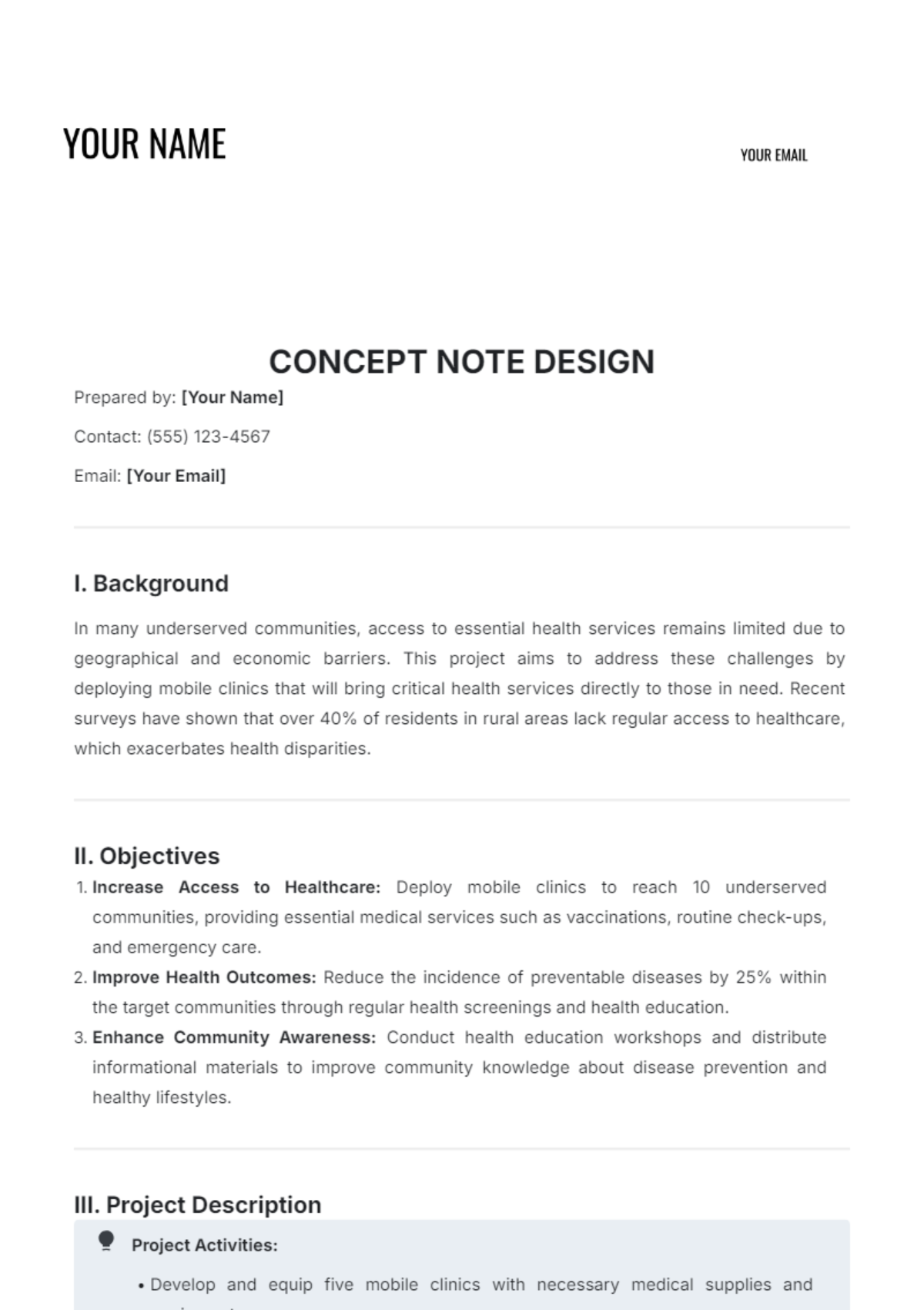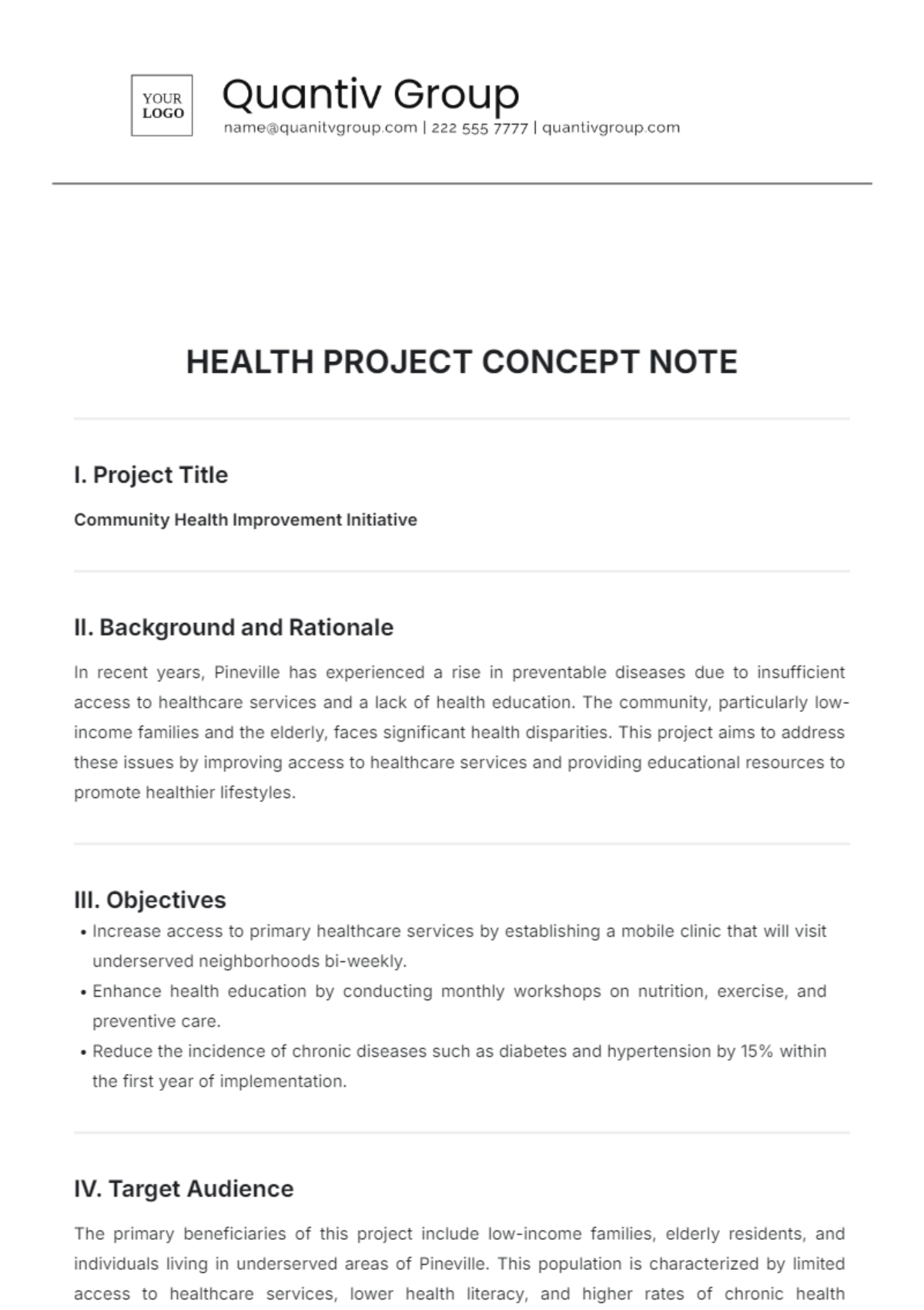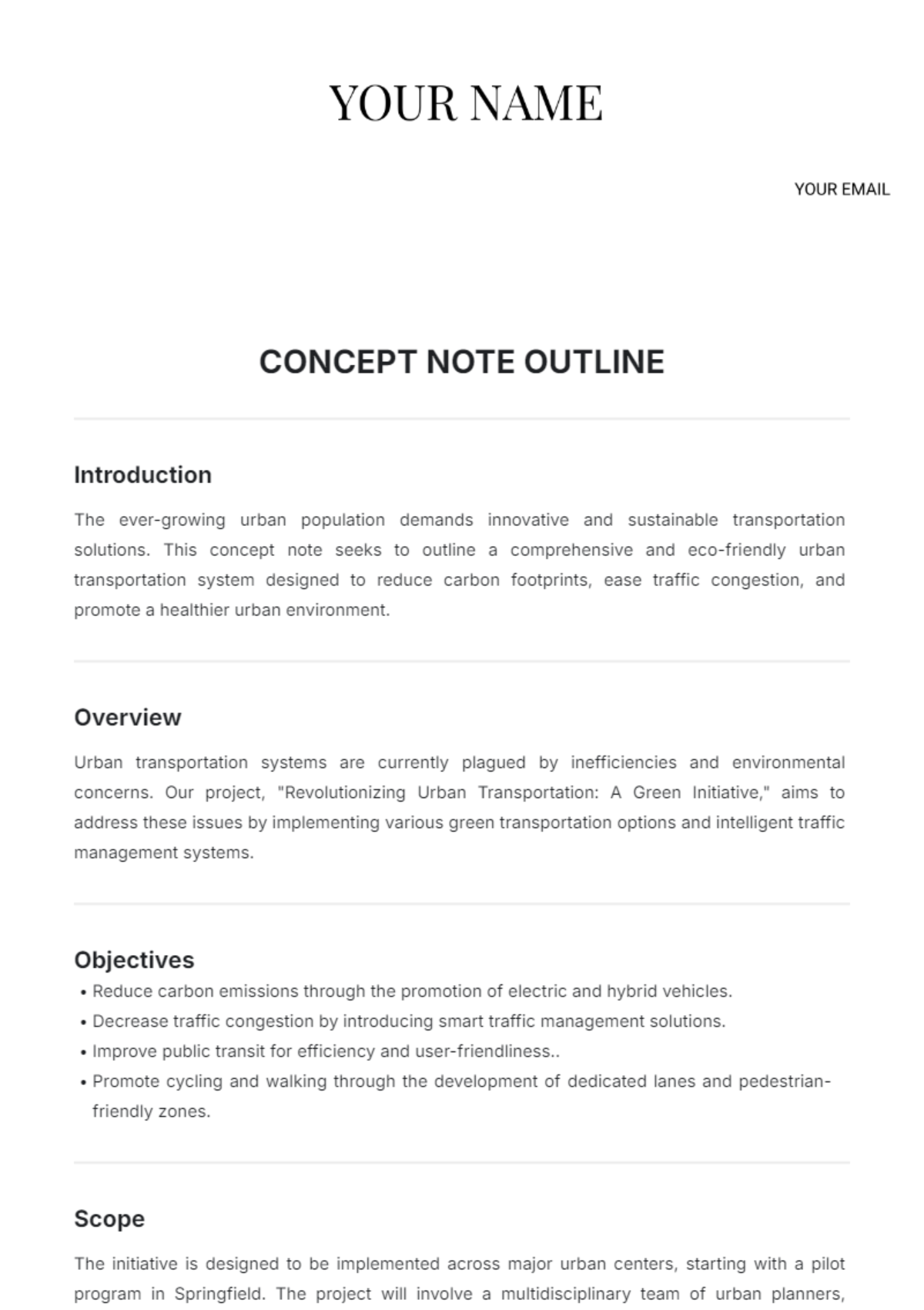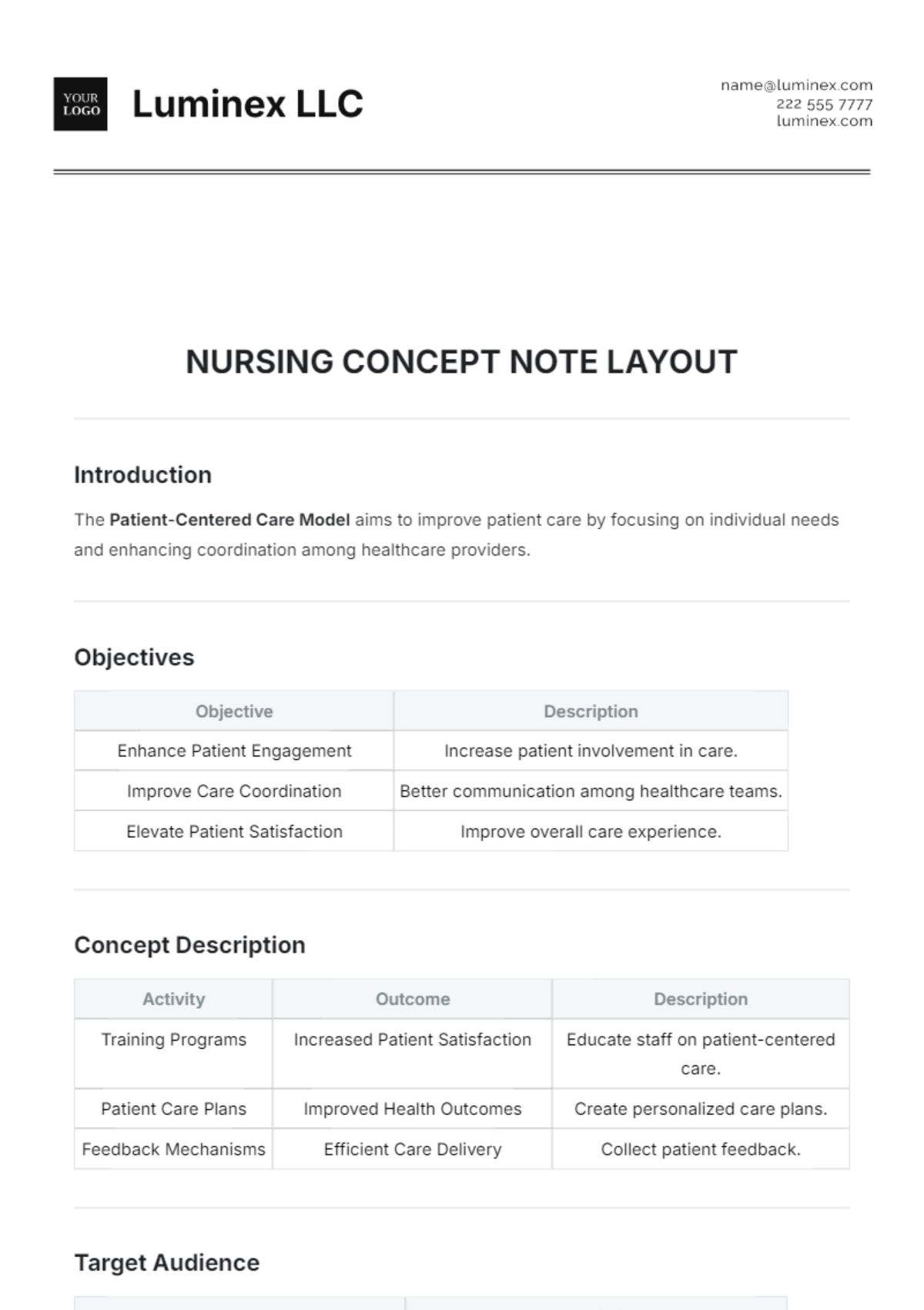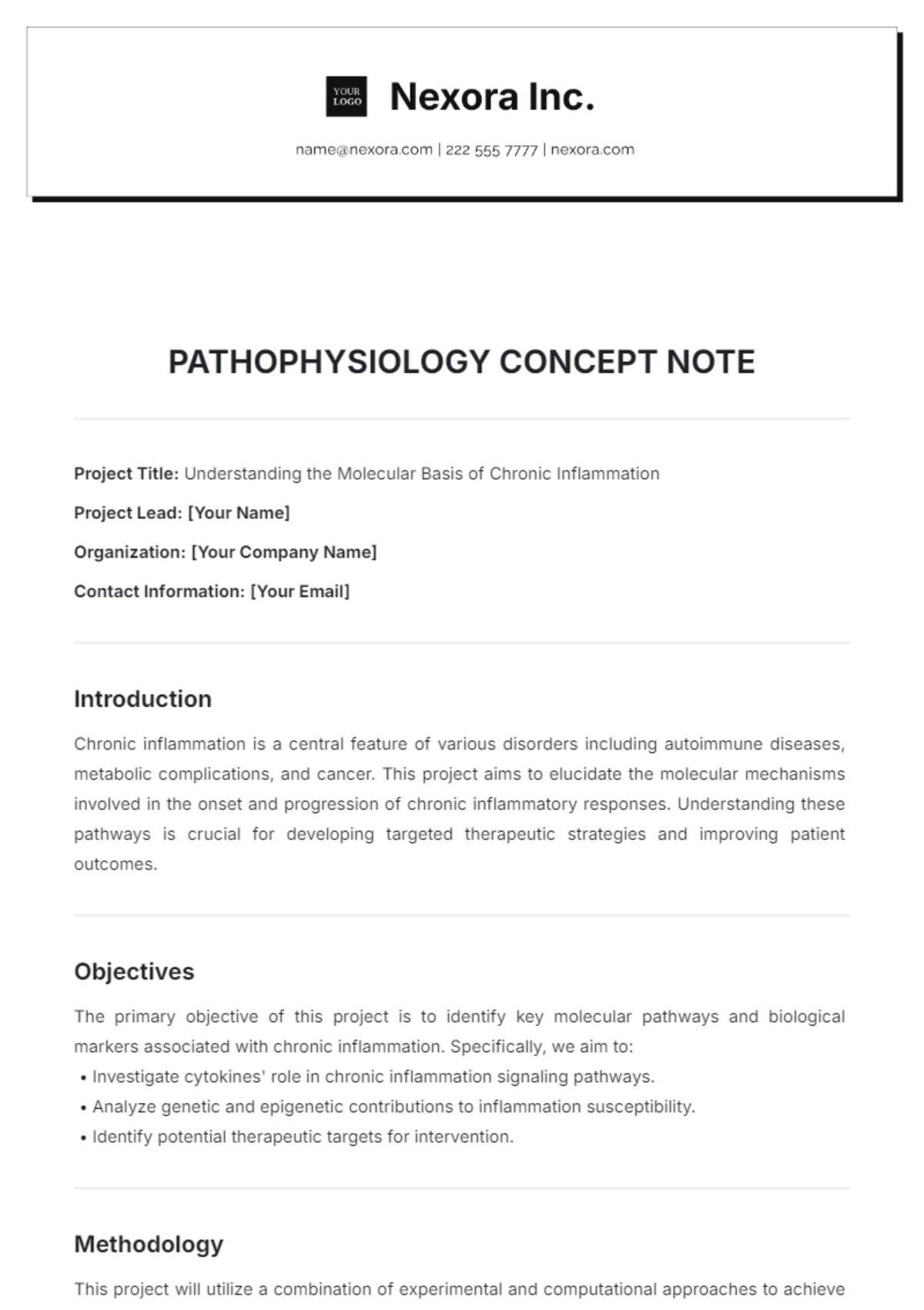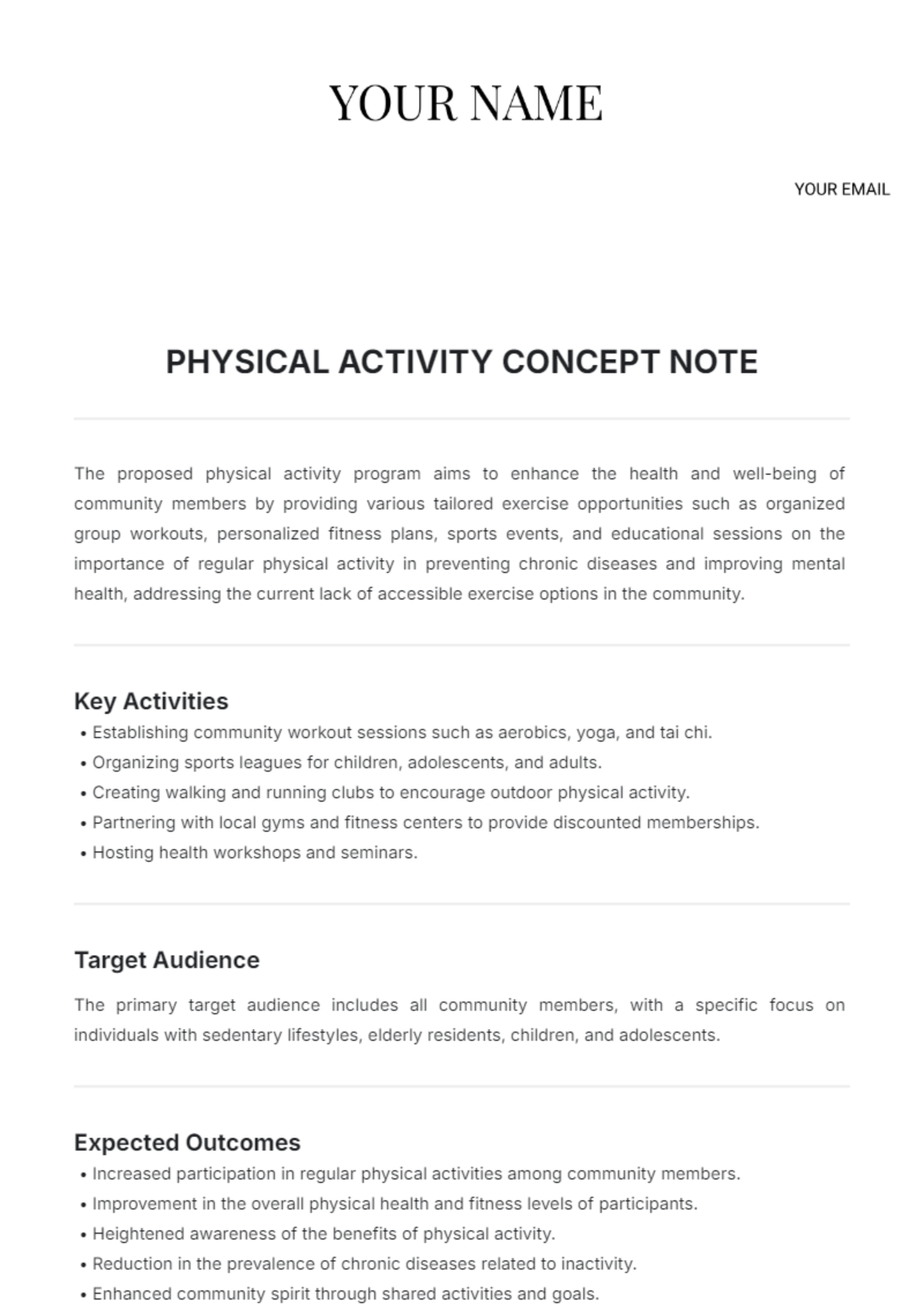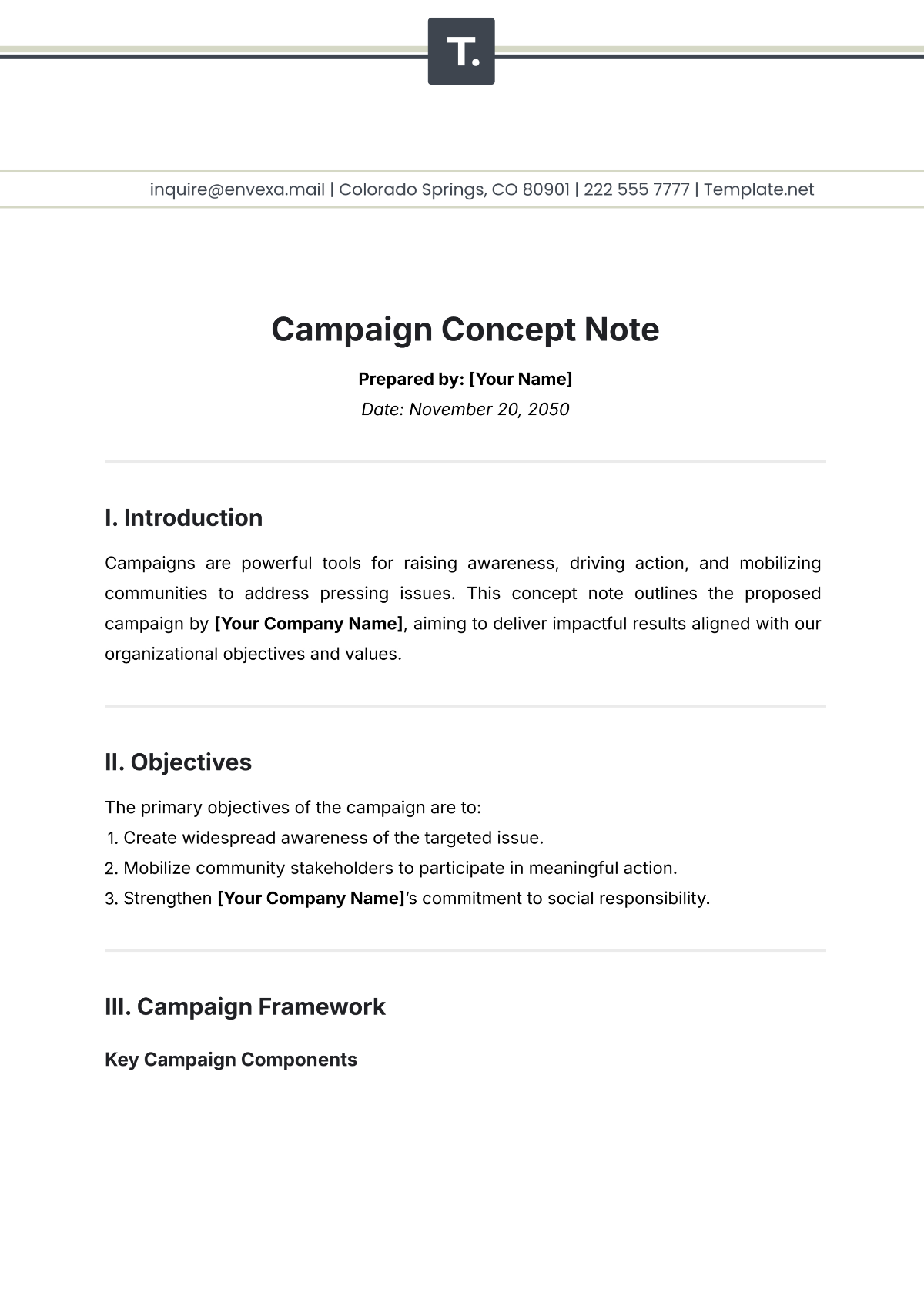LAW CONCEPT NOTE
Prepared by: [Your Name] | Contact: [Your Company Number] |
Company: [Your Company Name] | Email: [Your Company Email] |
I. Introduction
This Concept Note presents the Digital Health Data Protection Act proposal, aimed at improving privacy and security for health-related data in the digital realm. As healthcare data increasingly moves online, safeguarding this sensitive information has become paramount. This note outlines the key features of the proposed legislation and its relevance in tackling current and future data protection challenges in the healthcare sector.
II. Background
A. Legal Context
Currently, health data is protected under the Health Insurance Portability and Accountability Act (HIPAA) and the General Data Protection Regulation (GDPR) for entities operating in Europe. However, these regulations do not fully address the specific needs of digital health technologies and emerging practices such as telemedicine and electronic health records (EHRs). The Digital Health Data Protection Act aims to bridge these gaps with tailored measures for the modern digital health landscape.
B. Current Issues
Fragmented Regulations: Existing health data protections are often fragmented across different jurisdictions and sectors, leading to inconsistencies and gaps in coverage.
Increased Risk of Data Breaches: The proliferation of digital health tools has led to a rise in data breaches and unauthorized access, compromising patient privacy.
Technological Advancement: Rapid advancements in digital health technologies, such as wearable health devices and AI-driven diagnostics, outpace current regulatory frameworks.
III. Concept Overview
A. Description
The Digital Health Data Protection Act introduces comprehensive measures to secure health data, including mandatory encryption, secure data transfer protocols, and strict access controls. The act also proposes the creation of a Digital Health Data Oversight Board to oversee compliance and handle disputes related to health data privacy.
B. Objectives
Strengthened Data Security: To enforce advanced encryption methods and secure transmission practices to protect health data from breaches and unauthorized access.
Standardized Privacy Measures: To implement uniform privacy standards for digital health data across jurisdictions, ensuring consistent protection and compliance.
Enhanced Patient Control: To provide patients with more control over their health data, including rights to access, correct, and delete their information.
C. Implementation
Legislative Changes: The act will require amendments to existing health data protection laws and integration with digital health regulations.
Creation of Oversight Board: Establish the Digital Health Data Oversight Board responsible for monitoring compliance, providing guidance, and addressing privacy concerns.
Stakeholder Engagement: Conduct workshops and consultations with healthcare providers, technology developers, and patient advocacy groups to ensure the legislation meets practical needs and expectations.
IV. Benefits and Impact
A. Expected Benefits
Improved Data Security: Enhanced encryption and secure protocols will reduce the likelihood of data breaches, ensuring the confidentiality of sensitive health information.
Consistency in Privacy Practices: A standardized approach to privacy will simplify compliance for digital health companies and ensure uniform protection for patients.
Patient Empowerment: By granting patients greater control over their health data, the act will promote trust and transparency in digital health practices.
B. Potential Challenges
Implementation Costs: Healthcare providers and technology companies may face significant costs in upgrading systems to comply with new security and privacy requirements.
Regulatory Complexity: The creation of a new oversight board and the integration of the act with existing regulations could lead to increased administrative complexity.
Adaptability to Technological Changes: The act will need to remain flexible to accommodate future advancements in digital health technologies, requiring ongoing updates and adjustments.
V. Conclusion
The Digital Health Data Protection Act is a crucial step towards safeguarding health data in an increasingly digital world. By establishing robust data protection measures and creating a dedicated oversight body, the act aims to address current vulnerabilities and set a standard for privacy in digital health. This legislation will enhance security, improve consistency, and empower patients, making it a vital addition to the regulatory landscape.
VI. References
Health Insurance Portability and Accountability Act (HIPAA)
General Data Protection Regulation (GDPR)
Digital Health Data Security Guidelines by the World Health Organization (WHO)
Telemedicine Regulations and Compliance by the National Telemedicine Association (NTA)
Emerging Technologies in Health Data Report by Healthcare IT News




